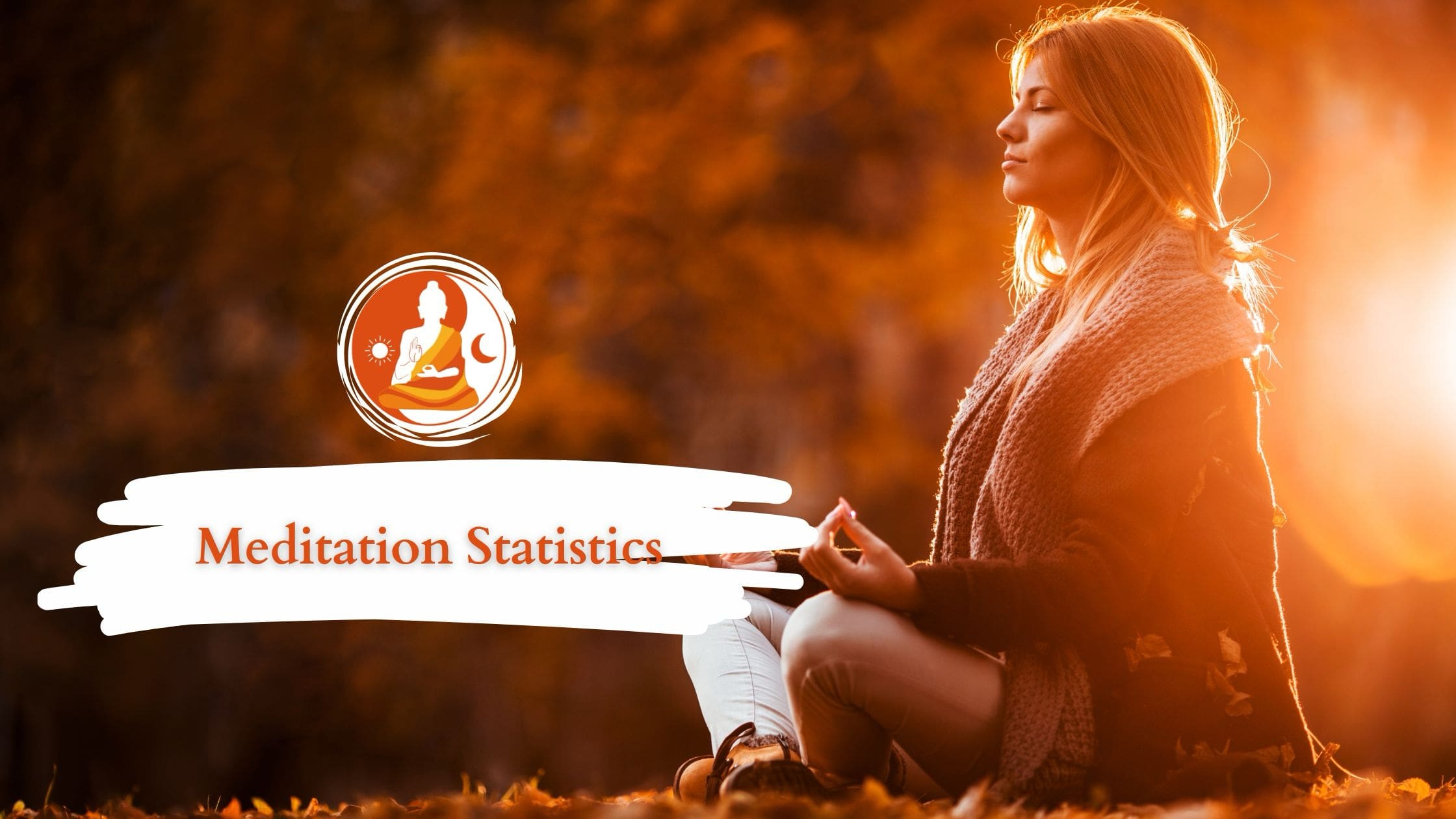Meditation has now become a worldwide phenomenon, touching lives across different continents and cultures. In recent years, meditation statistics have revealed significant growth in the number of people who have made this ancient practice a part of their daily lives. From reducing stress to enhancing mental clarity, the practice has attracted attention from individuals as well as scientific circles. This article explores how meditation has evolved, affected, and trended over the years, offering insights into its growing popularity and effectiveness.
Whether it is a daily practice, attending a meditation retreat in the United States, or joining the global mindfulness community, the benefits are undeniable. As research deepens and more people meditate, the transformative power of this ancient practice continues to inspire.
Table of Contents
ToggleHow Meditation Spread in the US?
The origins of meditation date back thousands of years to ancient civilizations, mainly in India and East Asia. Yet, it took a journey to the United States in the mid-20th century through pioneers such as Swami Vivekananda and Maharishi Mahesh Yogi. Transcendental Meditation had gained popularity in the 1960s as part of countercultural movements seeking mindfulness and self-discovery. Today, meditation is a mainstream activity in the US, with millions participating annually in activities such as yoga and meditation retreats across the United States. The availability of online platforms and apps has further expanded its reach, making it a practice embraced by people of all ages and backgrounds.
Read More: Traditional Chandra Namaskar
The Science Behind Meditation: Does It Actually Work?
Research on meditation studies has explored its benefits for decades. A statistical study on the benefits of meditation has shown significant improvements in stress reduction, emotional regulation, and overall mental health. In the digital age, sites such as Reddit have numerous testimonials on does meditation work reddit topics debating its impact and offering guidance on the same. As more organizations and schools include meditation in their routines, the practice continues to prove relevant.
Meditation Statistics: By the Numbers
Recent surveys indicate that approximately 14% of Americans meditate, equating to over 45 million people in meditation.
- Individuals Meditating: Meditation stats show that it is not limited by demography. Man meditation and black people meditation have increased dramatically, thus showing its universality.
- Mindfulness Global Community: The mindfulness community has expanded globally, with millions practicing across continents.
Statistics Supporting the Benefits of Meditation
Meditation research studies always point to its benefits. Some of the key findings include:
- Mental Health: Statistics on meditation reveal a 60% reduction in symptoms of depression and anxiety among regular practitioners.
- Physical Health: Mindfulness and meditation practice can reduce blood pressure and improve sleep quality.
- Productivity: The employees who meditate also have increased focus and efficiency in work. Meditation has been associated with creativity and better decision-making skills, making it a rich resource for professionals.
Yoga Statistics and Meditation Combination
Yoga and meditation often complement one another. According to yoga stats, there are more than 36 million Americans who practice yoga, most of whom also practice meditation. The union of the two leads to increased flexibility, mental acuity, and spiritual awareness, which explains their appeal. In this context, Yoga,India and meditation have maintained a growing attraction to all those interested in a holistic approach to body and mind.
How Old is Meditation?
Meditation is an ancient practice with a history of over 5,000 years. Stemming from Indian traditions and Asian meditation practices, it was originally a spiritual practice. Its longevity testifies to its universal worth and flexibility. The persistence of meditation as a practice demonstrates that it can be applied to age-old human concerns, ranging from achieving inner peace to promoting self-awareness.
Meditation Retreats in the USA
Meditation retreat united states programs have also become the most popular options for people looking to go deeper into mindfulness. It is a perfect setting where people can immerse themselves in the practice of mindfulness and further their understanding. Be it a weekend getaway or a week-long retreat, such experiences attract thousands of people each year. Retreats often also allow individuals to connect with like-minded people, hence building a sense of community and shared purpose. Many retreats also include yoga, nature walks, and wellness workshops to complement the experience.
Key Demographics: Who Meditates?
Hundreds of millions worldwide practice meditation, indicating its widespread nature.
- Men Meditation: Once a practice more characteristic of women, the proportion of men meditating has increased in recent years.
- Black People Meditate: The increasing participation among different populations indicates the broadening acceptance of mindfulness practices.
How Much Meditation Per Day?
Determining how much to meditate each day varies by individual goals. Experts suggest 10-20 minutes daily as an optimal starting point. However, advanced practitioners often meditate for hours, especially during retreats. Studies suggest that consistency in daily practice is more important than the duration, making even short sessions valuable. Creating a designated meditation space and setting regular reminders can help build a sustainable habit.
Read Now: How to Prepare for Yoga Teacher Training?
The Future of Meditation
More studies continue to be released on the benefits of meditation. With more awareness and ease of accessibility, more growth statistics about mindfulness may be observed. As technology improves, apps, and online sites continue to open up space for meditation in ways across cultures and geography. Meditation may also soon be interwoven into educational institutes and workplaces as a further step toward its integration into normal practice. Innovations in virtual reality and AI may open new avenues for engaging with meditation, making it more accessible and effective.
Embracing the Mindfulness World Community in a Busy World
Statistics speak to the growing importance of mindfulness in today’s fast-paced world. Start your journey today and discover the best meditation number for your lifestyle. Embracing mindfulness can lead to a healthier, more balanced life, making it a worthwhile pursuit for anyone.
Common Asked Questions
Approximately 14% of Americans, or over 45 million individuals, practice meditation regularly.
Yes, numerous studies on meditation show significant mental and physical health benefits, including stress reduction and improved focus.
Experts recommend starting with 10-20 minutes daily, adjusting based on individual needs and goals.
Meditation has roots that go back over 5,000 years and finds its origins in ancient Indian and Asian traditions.
Hundreds of millions worldwide meditate; this is a testament to how universal and effective it is.











